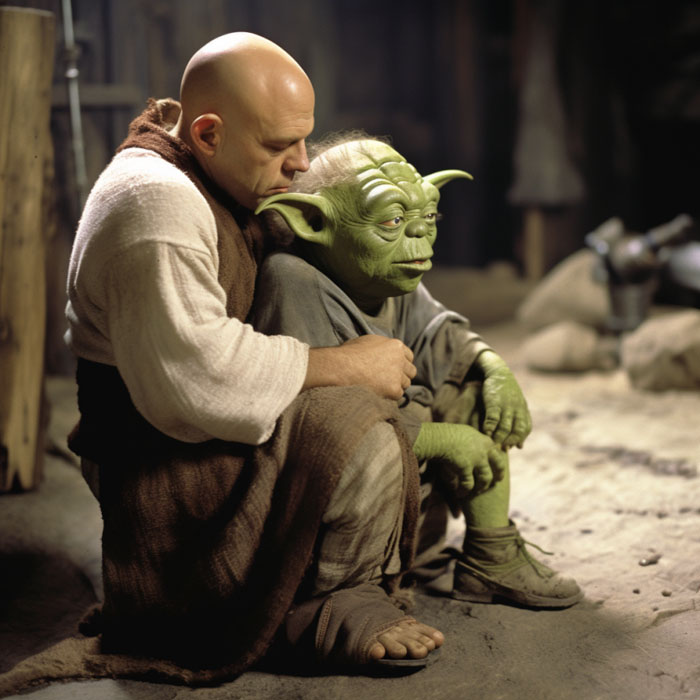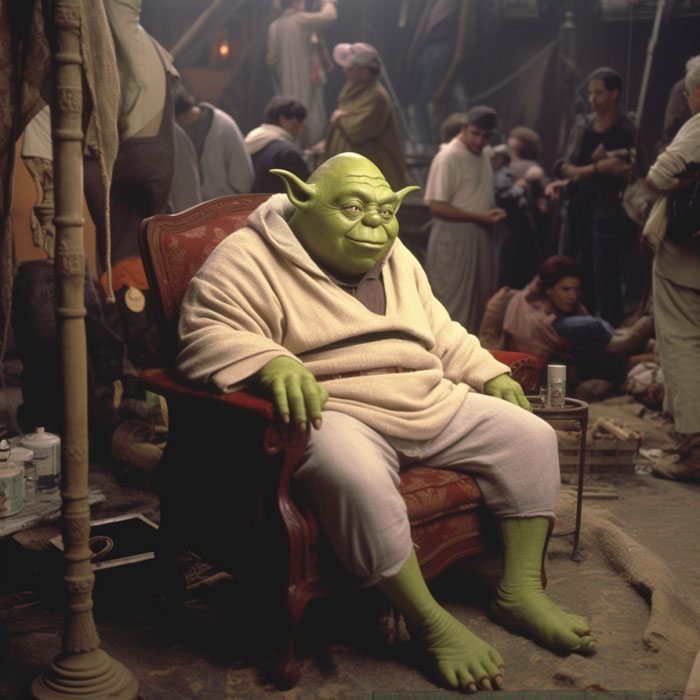Creating film art for AI involves the use of artificial intelligence techniques and technologies in filmmaking. AI can be applied to various aspects of the film production process, from scriptwriting and pre-production to post-production and distribution. Here are some ways in which AI is used in film art:



- Scriptwriting:
- AI-driven tools can help screenwriters by generating ideas, suggesting dialogue, and even creating complete scripts based on predefined themes or styles.
2. Casting:
- AI can analyze vast databases of actors’ performances and characteristics to assist in casting decisions, helping filmmakers find the perfect actors for their roles.
3. Pre-visualization:
- AI software can assist in pre-visualization by creating rough animations or storyboards based on script descriptions, helping directors and cinematographers plan their shots.
4. Production and Cinematography:
- AI-powered cameras and drones can be used to capture footage, assisting cinematographers in achieving specific shots and movements.
- Real-time AI algorithms can analyze and adjust lighting and camera settings to optimize image quality while shooting.
5. Post-Production:
- AI-driven editing tools can help streamline the editing process, automatically selecting the best takes and suggesting cuts.
- AI can assist in color grading, special effects, and sound design, allowing for more efficient and creative post-production work.
6. Visual Effects (VFX):
- AI-powered VFX tools can generate realistic and complex visual effects, such as CGI characters, creatures, and environments.
- AI can also enhance green screen compositing and object tracking, making VFX integration more seamless.
7. Voiceovers and Dubbing:
- AI-driven voice synthesis and voice modulation technologies can be used to create or modify character voices and dub films into multiple languages efficiently.
8. Soundtrack Composition:
- AI algorithms can compose original film scores or generate music tracks that match the mood and tempo of a scene.
9. Distribution and Marketing:
- AI can help identify target audiences and optimize marketing strategies for film promotion.
- Recommendation algorithms powered by AI can suggest films to viewers based on their preferences, improving the discoverability of independent or lesser-known films.
10. Content Analysis:
- AI can analyze and categorize film content, allowing for content ratings, identifying potentially offensive material, and ensuring compliance with regulations.
11. Script Translation:
- AI can assist in translating film scripts and subtitles into multiple languages, making films more accessible to global audiences.
12. Film Restoration:
- AI can aid in the restoration of old or damaged films by digitally repairing and enhancing image and audio quality.
13. Screenwriting Assistance:
- AI can provide real-time suggestions and feedback to screenwriters as they work, helping them refine their scripts and storytelling.
14. Crowdsourcing and Collaborative Filmmaking:
- AI-powered platforms can facilitate collaboration among filmmakers and artists, allowing them to work on projects together, share resources, and access a global network of talent.

AI is becoming an increasingly valuable tool in the film industry, offering filmmakers new creative possibilities, cost-effective solutions, and streamlined workflows. While AI can assist in various aspects of film production, it often works in collaboration with human creativity and expertise to bring unique stories to life on the big screen.
You can learn more Film Art Prompts Here
Link :>

